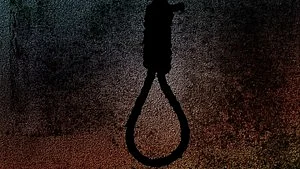Mumbai: The Rashtriya Swayamsevak Sangh (RSS) has flagged the increase in Muslim population in the border areas of the country. In an editorial in the latest issue of its magazine, the Organiser, its editor Praful Ketkar has noted that.
"Despite stabilising the population at the national level, it is not the same in all religions and regions. There is a significant Muslim population growth in certain areas, especially bordering districts. The bordering States of West Bengal, Bihar, Assam and Uttarakhand are witnessing unnatural population growth due to illegal migration across the borders. In a democracy, when numbers are critical regarding representation and demography decides the destiny, we must be even more cautious of this trend."
Ketkar said "Politicians like Rahul Gandhi can afford to insult Hindu sentiments now and then, Mamata can play the blatant Muslim card even to accept the atrocities on women by the Islamists, and Dravidian parties can take pride in abusing the Sanatan Dharma only because of their confidence in the consolidation of so-called minority vote-bank developed with the population imbalance."
Underling the urgency of the situation, Ketkar said "Learning from the horrors of the Partition and what is happening with the politically correct but socially and culturally incorrect migration from West Asian and African countries, we have to address this issue urgently, as pointed out by various RSS resolutions and judicial pronouncements."
Ketkar has also drawn attention to regional imbalance. He said "Regional imbalance is another critical dimension that will impact the delimitation process of the parliamentary constituencies in the future. States from the West and South are doing relatively better regarding population control measures and, therefore, fear losing a few seats in Parliament if the base population is changed after the census. Hence, we need policies to ensure that population growth does not disproportionately impact any single religious community or region, which can lead to socio-economic disparities and political conflicts."
Ketkar noted that "Even before the commemoration of World Population Day, way back on December 10, 1974, the Henry Kissinger Report, which was titled ‘Implications of Worldwide Population Growth For U.S. Security and Overseas Interests’, talked about pushing for various means to control the population of countries like Bharat in all possible ways. Instead of getting carried away by the external agenda pushed through international organisations, research foundations and consultancy agencies, we should strive for a comprehensive National Population Policy, keeping in view the availability of resources in the country, future needs and the problem of demographic imbalance and apply the same uniformly to all."










